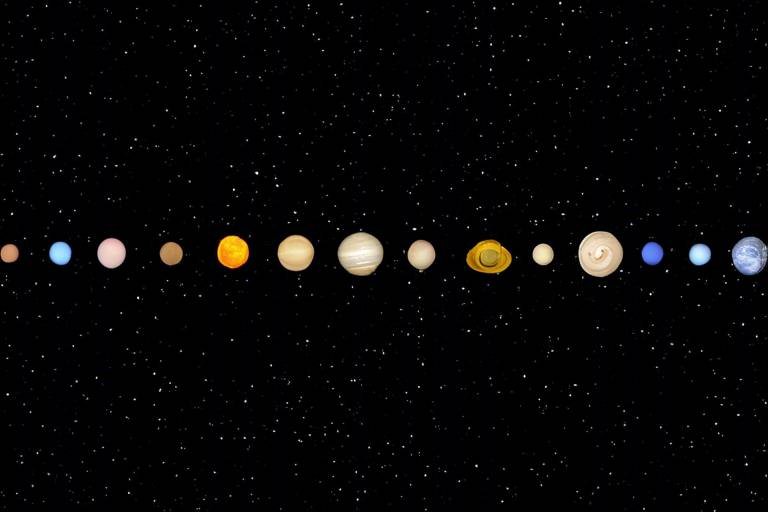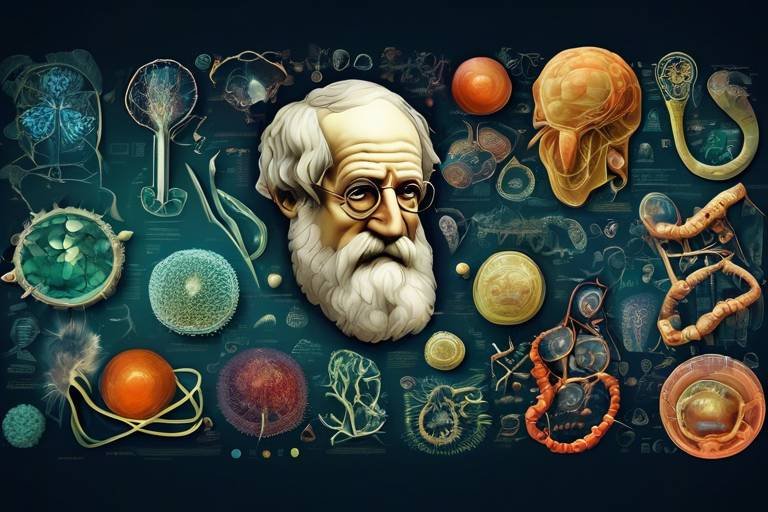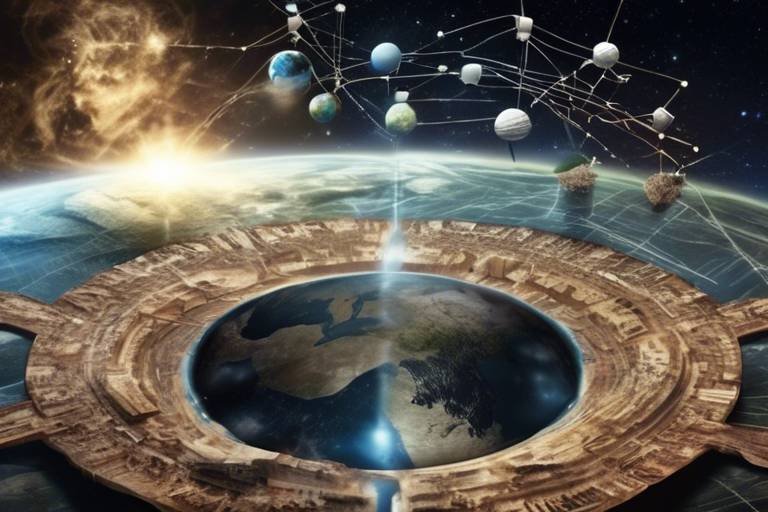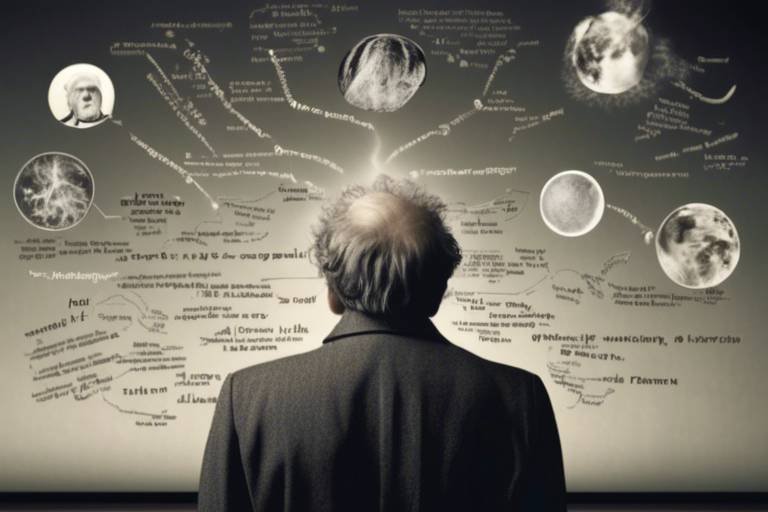The Solar System - A Study of Philosophy and Cosmology
The solar system, a magnificent expanse of celestial wonders, is not merely a collection of planets and moons; it is a profound tapestry woven with threads of scientific inquiry and philosophical contemplation. As we gaze at the night sky, we are often struck by the sheer beauty and mystery of the cosmos, which invites us to ponder our place within it. This article explores the intricate relationship between philosophical thought and cosmological discoveries within our solar system, highlighting key concepts, historical perspectives, and their implications on human understanding of the universe.
Examining the formation of the solar system offers insights into both scientific theories and philosophical implications regarding existence, time, and the nature of cosmic evolution. The prevailing scientific theory, known as the nebular hypothesis, suggests that our solar system formed from a giant cloud of gas and dust approximately 4.6 billion years ago. This primordial material gradually coalesced under the force of gravity, leading to the birth of the Sun, planets, and other celestial bodies. But beyond the mechanics of formation, we are compelled to ask deeper questions: What does it mean for something to exist? How does the unfolding of time relate to our understanding of the universe? These inquiries not only challenge our scientific knowledge but also provoke philosophical reflections on the nature of reality itself.
Celestial bodies have long inspired philosophical inquiry, prompting questions about existence, meaning, and humanity's place in the universe through the lens of planets, moons, and stars. For instance, when we consider the vastness of space, we might wonder: Are we alone? What significance does our existence hold in the grand scheme of things? Such questions lead us to explore different philosophical frameworks that attempt to make sense of our cosmic context.
Earth's unique position within the solar system invites philosophical discussions about life, consciousness, and our responsibilities towards the planet in the broader context of the cosmos. As the only known planet to harbor life, Earth is often viewed as a precious oasis in the vast desert of space. This realization can be both exhilarating and daunting, as it compels us to consider our ethical obligations not only to each other but also to the myriad forms of life that share our home. How do we balance our needs with the health of the planet? This question is at the heart of many philosophical debates today.
The belief that human beings are the central or most significant entities in the universe shapes our understanding of Earth’s role and raises questions about our ethical obligations to other life forms. This anthropocentric viewpoint often leads to a sense of entitlement over nature, which can have dire consequences for our environment. As we explore our solar system, we must grapple with the implications of this mindset and consider whether it is time to shift towards a more ecocentric perspective that recognizes the intrinsic value of all living beings.
This hypothesis posits that Earth functions as a self-regulating system, encouraging philosophical debates about interconnectedness and the moral implications of environmental stewardship. According to the Gaia hypothesis, the complex interactions between living organisms and their inorganic surroundings form a dynamic system that maintains conditions conducive to life. This view challenges us to rethink our relationship with the planet and foster a sense of responsibility towards preserving its delicate balance.
The development of astronomy has profoundly impacted philosophical thought, challenging perceptions of reality and prompting inquiries into the nature of knowledge and truth. As we have advanced our understanding of the cosmos, we have also been forced to reconsider our place within it. The discoveries of distant galaxies, black holes, and the expanding universe challenge our traditional notions of existence and compel us to explore new philosophical paradigms.
Cosmological discoveries challenge traditional philosophical views, inviting deeper exploration into the nature of reality, time, and space, and how these concepts influence human understanding of existence. Each new finding in the realm of cosmology serves as a reminder that our understanding of the universe is still evolving. Just as the ancient Greeks looked up at the stars and pondered their meaning, we too must engage with the mysteries of the cosmos and seek to understand our place within it.
Time is a fundamental aspect of both philosophy and cosmology, with theories about its linearity or cyclical nature prompting significant reflections on human life and the universe. The way we perceive time shapes our understanding of existence itself. Are we mere passengers on a linear timeline, or do we exist within a cyclical pattern of birth, death, and rebirth? These questions provoke profound philosophical debates about the nature of reality and our experiences within it.
The multiverse theory suggests the existence of multiple universes, raising profound philosophical questions about fate, free will, and the nature of reality itself. If there are infinite versions of ourselves in parallel universes, what does that mean for our choices and actions? This theory not only expands our understanding of the cosmos but also challenges our fundamental beliefs about individuality and existence.
- What is the solar system? The solar system consists of the Sun and all celestial bodies that are bound to it by gravity, including planets, moons, asteroids, and comets.
- How did the solar system form? The solar system formed from a giant cloud of gas and dust, which collapsed under gravity and led to the creation of the Sun and planets.
- What is the Gaia hypothesis? The Gaia hypothesis suggests that Earth functions as a self-regulating system, where living organisms interact with their environment to maintain conditions for life.
- What is the multiverse theory? The multiverse theory proposes that there are multiple, perhaps infinite, universes that exist parallel to our own, each with different physical laws and realities.
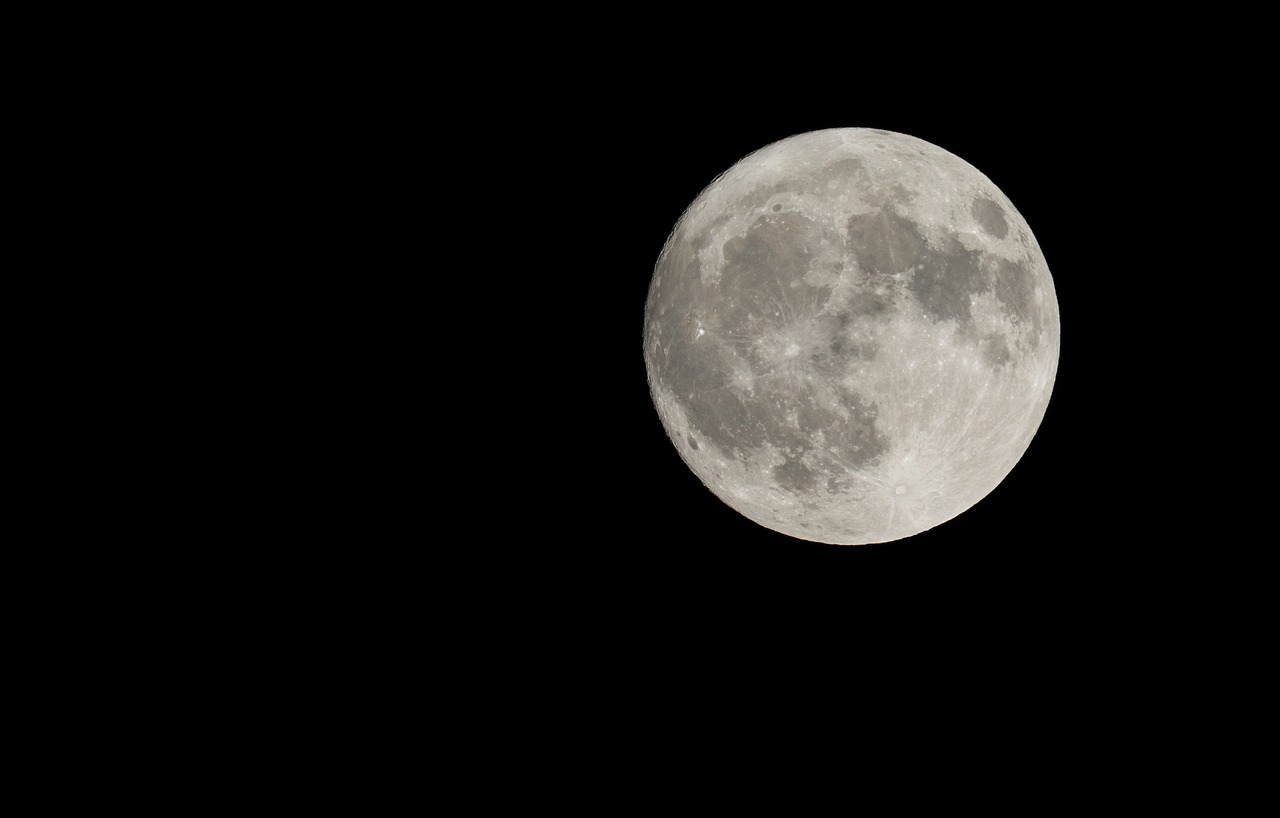
The Origins of the Solar System
Understanding the origins of our solar system is like peeling back the layers of a cosmic onion, revealing not just the scientific processes involved, but also the profound philosophical questions that arise from them. The solar system, as we know it today, formed approximately 4.6 billion years ago from a giant molecular cloud, a swirling mass of gas and dust. This event, known as the solar nebula theory, suggests that the gravitational collapse of this cloud led to the formation of the sun at its center, while the remaining material coalesced to form the planets, moons, asteroids, and comets that populate our solar system.
The journey of our solar system's formation is not just a scientific tale; it also prompts us to ponder the nature of existence itself. For instance, if the universe began with a singular event, what does that mean for our understanding of time? Are we merely the products of chance, or is there a deeper purpose behind our existence? These inquiries resonate deeply within philosophical circles, urging us to consider the implications of a universe that has evolved over billions of years.
Moreover, the processes that led to the birth of our solar system also highlight the concept of cosmic evolution. Just as living organisms evolve over time through natural selection, the solar system has undergone transformations driven by gravitational forces, collisions, and other cosmic phenomena. This evolutionary perspective invites a reflection on the interconnectedness of all things, suggesting that the very atoms that make up our bodies were once part of stars that exploded, scattering their elements across the universe. In this sense, we are not merely inhabitants of Earth; we are the universe made conscious.
To further illustrate the stages of our solar system's formation, consider the following table:
| Stage | Description |
|---|---|
| 1. Solar Nebula | A massive cloud of gas and dust collapses under its own gravity. |
| 2. Formation of the Sun | The core of the nebula becomes hot and dense, igniting nuclear fusion. |
| 3. Planetary Formation | Remaining material forms a protoplanetary disk, leading to the creation of planets. |
| 4. Clearing the Neighborhood | Planets clear their orbits of debris, resulting in stable planetary orbits. |
As we delve deeper into the origins of our solar system, we uncover not only the mechanics of its formation but also the philosophical implications that arise from such knowledge. The realization that we are part of a grand cosmic narrative can be both humbling and empowering. It challenges us to consider our responsibilities towards our planet and each other, as we navigate our place in this vast and intricate universe.
In conclusion, the origins of the solar system serve as a fascinating intersection of science and philosophy. They compel us to ask questions about existence, purpose, and our relationship with the cosmos. As we continue to explore these themes, we not only expand our understanding of the universe but also enrich our appreciation for the delicate balance of life on Earth.
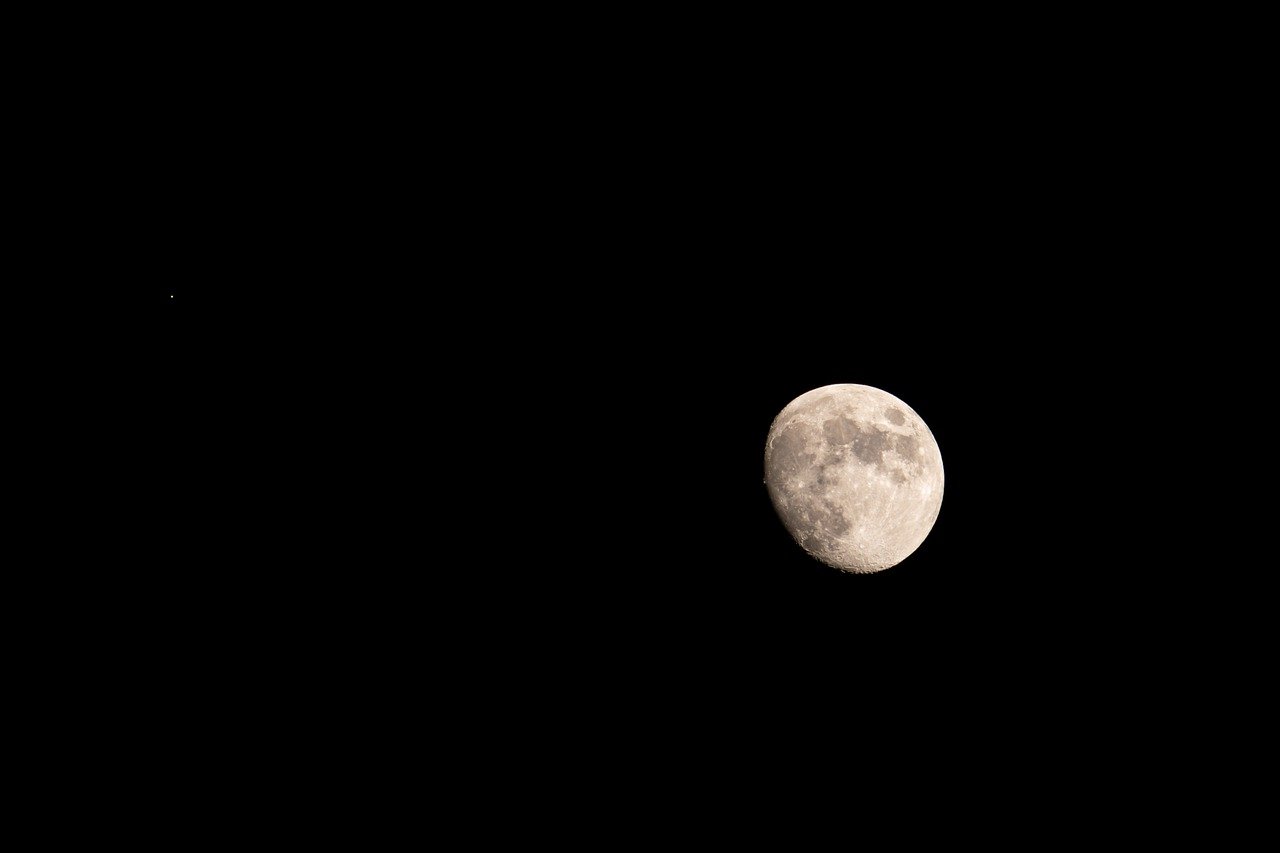
The Philosophical Implications of Celestial Bodies
Celestial bodies, from the radiant sun to the distant stars, have always been more than mere objects of scientific inquiry; they are profound sources of philosophical contemplation. When we gaze up at the night sky, we can't help but wonder: what does it all mean? This quest for understanding has spurred countless philosophical debates, prompting us to question our very existence and the significance of our place in the universe. Are we just insignificant specks in a vast cosmos, or do we hold a pivotal role in the grand scheme of things?
Throughout history, various cultures have attributed meaning to celestial phenomena, often intertwining their beliefs with the movements of planets and stars. Take, for instance, the ancient Greeks, who saw the constellations as reflections of their myths and legends. Each star was a character in their stories, a reminder of their values and aspirations. Similarly, the philosophy of astrology suggests that the positions of celestial bodies influence our destinies, sparking debates about fate versus free will.
Consider the planets in our solar system. Each one, with its unique characteristics, encourages us to ponder different aspects of existence. For example, Mars, often associated with war and aggression, raises questions about human conflict and the nature of violence. In contrast, Venus, the planet of love and beauty, invites reflections on relationships and emotional connections. These celestial bodies are not just physical entities; they serve as mirrors for our thoughts, feelings, and societal constructs.
The moons of these planets also carry their own philosophical weight. For instance, the moon has been a symbol of feminine energy and intuition across various cultures. Its cycles prompt us to reflect on the passage of time and the cyclical nature of life itself. In a way, the moon reminds us that just as it waxes and wanes, so too do our experiences and emotions. This cyclical understanding of existence is a powerful philosophical concept that resonates with many.
Moreover, the vastness of space leads to profound inquiries about our place in the universe. Are we alone? The search for extraterrestrial life not only ignites our curiosity but also forces us to confront our own identity. If we discover intelligent life elsewhere, what does that mean for humanity? Are we still the pinnacle of evolution, or just one of many intelligent species? Such questions challenge our anthropocentric views and invite us to explore the interconnectedness of all life.
As we delve deeper into the cosmos, we encounter the notion of interconnectedness. The Gaia Hypothesis posits that Earth and its biological systems behave as a single, self-regulating entity. This perspective encourages us to reconsider our responsibilities towards the planet and the other beings that inhabit it. If we are all part of a larger cosmic tapestry, how should we act? This philosophical inquiry is crucial, especially in an age where environmental concerns are at the forefront of global discourse.
In summary, celestial bodies are not just distant objects in the sky; they are profound sources of philosophical inquiry that challenge our understanding of existence, meaning, and our responsibilities. They invite us to contemplate our place in the universe and reflect on the deeper truths that govern our lives. As we continue to explore the cosmos, we must remain open to the philosophical implications that arise, for they enrich our understanding of both ourselves and the universe.
- What role do celestial bodies play in philosophy? Celestial bodies inspire philosophical inquiry about existence, meaning, and humanity's place in the universe.
- How does the Gaia Hypothesis relate to philosophy? The Gaia Hypothesis suggests interconnectedness, prompting discussions about our responsibilities towards the planet and its ecosystems.
- Can celestial bodies influence human behavior? Many cultures believe that celestial events can impact human emotions and actions, leading to debates about fate and free will.
- What questions do celestial bodies raise about life beyond Earth? The search for extraterrestrial life challenges our understanding of intelligence and our significance in the universe.
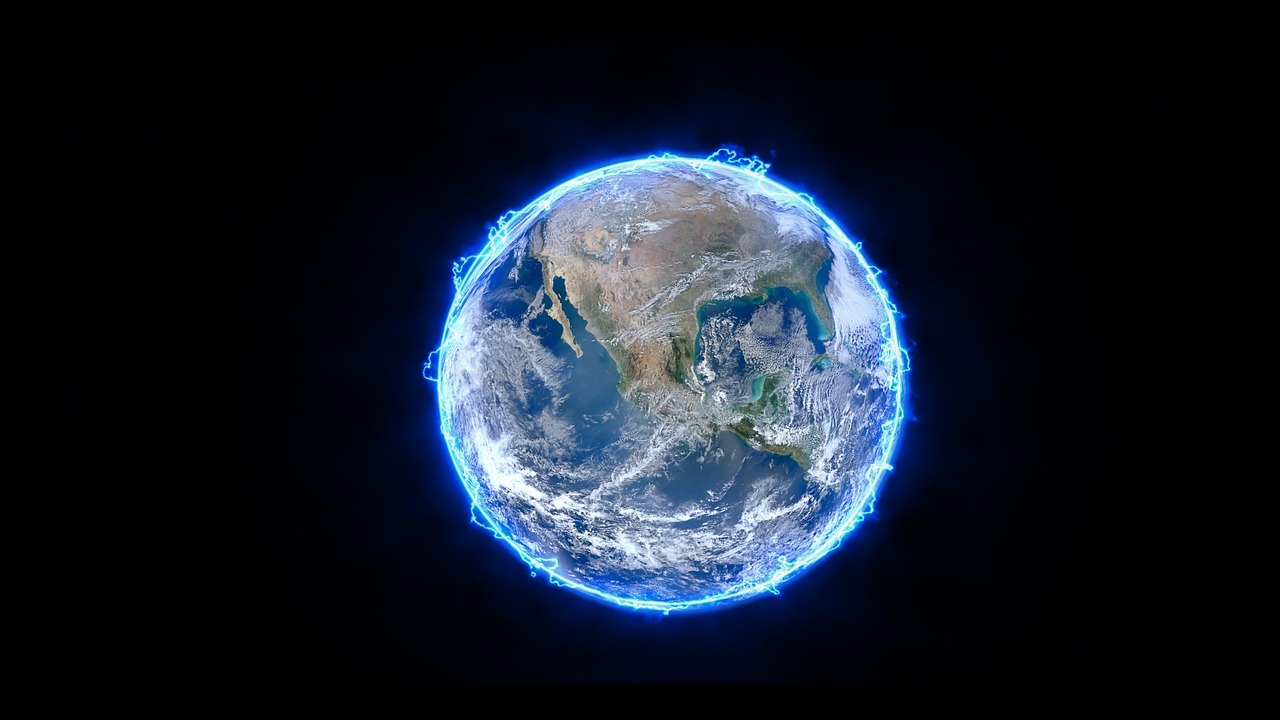
The Role of Earth in Cosmology
When we think about the vastness of the universe, it's easy to feel small, like a grain of sand on a sprawling beach. Yet, our planet, Earth, holds a unique place in the grand tapestry of cosmology. It’s not just a dot in the cosmos; it's a cradle of life, consciousness, and a hub for human inquiry. Philosophically, Earth prompts us to ponder profound questions about existence, purpose, and our responsibilities as stewards of this beautiful blue planet.
Earth's position in the solar system is not merely a scientific fact; it carries deep philosophical implications. For instance, the Anthropocentric viewpoint suggests that humans are the central figures in the universe. This perspective shapes our understanding of our role on Earth and raises critical questions about how we interact with other life forms. Are we the masters of our domain, or merely one thread in the intricate web of life? This viewpoint can lead to a sense of entitlement, but it also invites a sense of duty to protect our environment and coexist with other species.
Another fascinating concept is the Gaia Hypothesis, which posits that Earth functions as a self-regulating system. This idea encourages us to think about how all living organisms, including humans, are interconnected and contribute to the health of our planet. It challenges us to reflect on our moral obligations towards the environment. If we view Earth as a living entity, then our actions towards it become more than just choices; they are ethical decisions that impact the very fabric of life itself.
Moreover, Earth serves as a lens through which we can explore the universe. The mysteries of the cosmos are often filtered through our experiences on this planet. Our understanding of time, space, and existence is rooted in our earthly experiences. For instance, when we look up at the stars, we are not just observing distant celestial bodies; we are contemplating our origins, our future, and our place within the universe. This connection between the terrestrial and the cosmic invites a deeper inquiry into the nature of reality.
In essence, Earth is not just a backdrop for cosmic events; it is a central character in the narrative of existence. Our exploration of the universe, from the smallest particles to the largest galaxies, is deeply intertwined with our understanding of Earth. As we continue to explore and learn, we must ask ourselves: What does it mean to be a part of this cosmic drama? How do our actions impact not only our planet but the universe at large? These questions are not just philosophical musings; they are essential for our survival and the future of all life.
As we delve deeper into cosmological studies and philosophical inquiries, we must remember that our journey is as much about understanding ourselves as it is about understanding the universe. The role of Earth in cosmology is a reminder that we are not just passive observers but active participants in the unfolding story of existence.
- Why is Earth considered unique in the solar system? Earth is the only known planet that supports life, with a diverse ecosystem and conditions suitable for living organisms.
- What is the Anthropocentric viewpoint? This viewpoint centers on the belief that humans are the most significant entities in the universe, influencing our ethical responsibilities towards other life forms.
- What does the Gaia Hypothesis suggest? The Gaia Hypothesis proposes that Earth functions as a self-regulating system, where all living organisms interact with their inorganic surroundings to maintain conditions for life.
- How does Earth influence our understanding of the universe? Our experiences on Earth shape our perceptions of time, space, and existence, allowing us to explore the cosmos through a familiar lens.

The Anthropocentric Viewpoint
The anthropocentric viewpoint is a fascinating lens through which we can examine our place in the universe. It suggests that humans are the most significant entities in the cosmos, a concept that has shaped much of our philosophical and ethical thinking throughout history. But have you ever stopped to consider the implications of this belief? If we view ourselves as the center of existence, how does that influence our interactions with the environment and other life forms?
Historically, this perspective has led to a variety of interpretations regarding our responsibilities towards nature. For instance, the idea that we are superior to other species can foster a sense of entitlement, prompting actions that prioritize human needs over ecological balance. This has resulted in significant environmental challenges, including climate change and biodiversity loss. Yet, if we shift our perspective, recognizing our interconnectedness with the natural world, we might cultivate a more sustainable approach to living.
To further explore the anthropocentric viewpoint, we can consider the following aspects:
- Ethical Obligations: If humans are at the center, what ethical responsibilities do we have towards other species? Should we protect them, or is it acceptable to exploit them for our benefit?
- Environmental Impact: How does our belief in human supremacy affect our treatment of the planet? Are we caretakers, or are we merely consumers?
- Philosophical Reflection: What does it mean to be human in a universe that is vast and largely indifferent? This question challenges us to reflect on our identity and purpose.
Moreover, the anthropocentric viewpoint can be contrasted with other philosophical perspectives, such as biocentrism or ecocentrism, which argue that all living beings have intrinsic value, regardless of their utility to humans. This shift in thinking encourages a more holistic understanding of our role within the solar system and beyond. By recognizing the interconnectedness of all life, we can foster a sense of stewardship rather than dominance.
In conclusion, embracing or challenging the anthropocentric viewpoint can lead to profound changes in how we perceive our responsibilities towards the Earth and its inhabitants. As we delve deeper into the cosmos and uncover its mysteries, it is essential to reflect on what it truly means to be human. Are we merely observers of the universe, or are we active participants in its ongoing story?
- What is the anthropocentric viewpoint? The anthropocentric viewpoint is the belief that humans are the most significant entities in the universe, shaping our ethical and philosophical understanding of existence.
- How does this viewpoint affect environmental policies? This perspective can lead to policies that prioritize human needs over ecological health, potentially resulting in environmental degradation.
- Are there alternatives to the anthropocentric viewpoint? Yes, perspectives such as biocentrism and ecocentrism advocate for the intrinsic value of all living beings, promoting a more sustainable relationship with nature.
- What are the implications of shifting away from an anthropocentric perspective? Shifting perspectives can foster a sense of stewardship and interconnectedness, encouraging more responsible environmental practices and ethical considerations.

The Gaia Hypothesis
The Gaia Hypothesis, proposed by the scientist James Lovelock in the 1970s, presents a revolutionary perspective on our planet's functioning. It suggests that Earth is not just a collection of individual organisms and inorganic matter, but rather a single, self-regulating system. This concept invites us to rethink our relationship with the environment and raises profound philosophical questions about our role within this intricate web of life. Imagine Earth as a living organism, where every creature, plant, and mineral plays a vital part in maintaining the balance necessary for life. This interconnectedness is not merely a poetic notion; it has significant implications for how we understand our responsibilities as stewards of the planet.
At the heart of the Gaia Hypothesis is the idea that the biosphere, atmosphere, oceans, and soil interact in a way that promotes life. For instance, consider how plants produce oxygen while animals consume it, creating a balance that sustains both. This reciprocal relationship highlights the importance of biodiversity and the need for each species to thrive for the overall health of the planet. The hypothesis challenges the traditional anthropocentric viewpoint, urging us to recognize that human activity can disrupt this delicate balance, leading to environmental degradation and climate change.
Furthermore, the Gaia Hypothesis encourages a shift in our ethical framework. If we view Earth as a living entity, our actions towards it take on greater significance. We are called to reflect on the following questions:
- What does it mean to live sustainably within a self-regulating system?
- How do our daily choices impact the health of this planetary organism?
- In what ways can we contribute to the restoration and preservation of Earth's ecosystems?
By embracing the Gaia Hypothesis, we can cultivate a sense of interconnectedness that transcends individual species and extends to the entire planet. This perspective fosters a deeper appreciation for nature and compels us to act with greater responsibility. It challenges us to consider how our lifestyles, consumption patterns, and technological advancements affect not just our immediate surroundings but the global environment as a whole.
In conclusion, the Gaia Hypothesis serves as a philosophical framework that encourages us to reevaluate our place in the universe. It invites us to act not only as inhabitants of Earth but as integral components of a larger, living system. By recognizing our interconnectedness with all forms of life, we can foster a more harmonious relationship with our planet, ensuring its vitality for future generations.
- What is the Gaia Hypothesis? The Gaia Hypothesis proposes that Earth is a self-regulating system where living organisms interact with their inorganic surroundings to maintain conditions for life.
- How does the Gaia Hypothesis relate to climate change? The Gaia Hypothesis highlights the interconnectedness of life and the environment, emphasizing that human actions can disrupt the balance necessary for a healthy planet, contributing to climate change.
- What are the implications of the Gaia Hypothesis for environmental ethics? It encourages a shift from an anthropocentric view to one that recognizes the intrinsic value of all life forms, urging us to act responsibly towards the environment.
- Can the Gaia Hypothesis be scientifically tested? While it is difficult to test the hypothesis in a traditional scientific sense, many aspects of it are supported by ecological and biological research that illustrates the interconnectedness of Earth's systems.
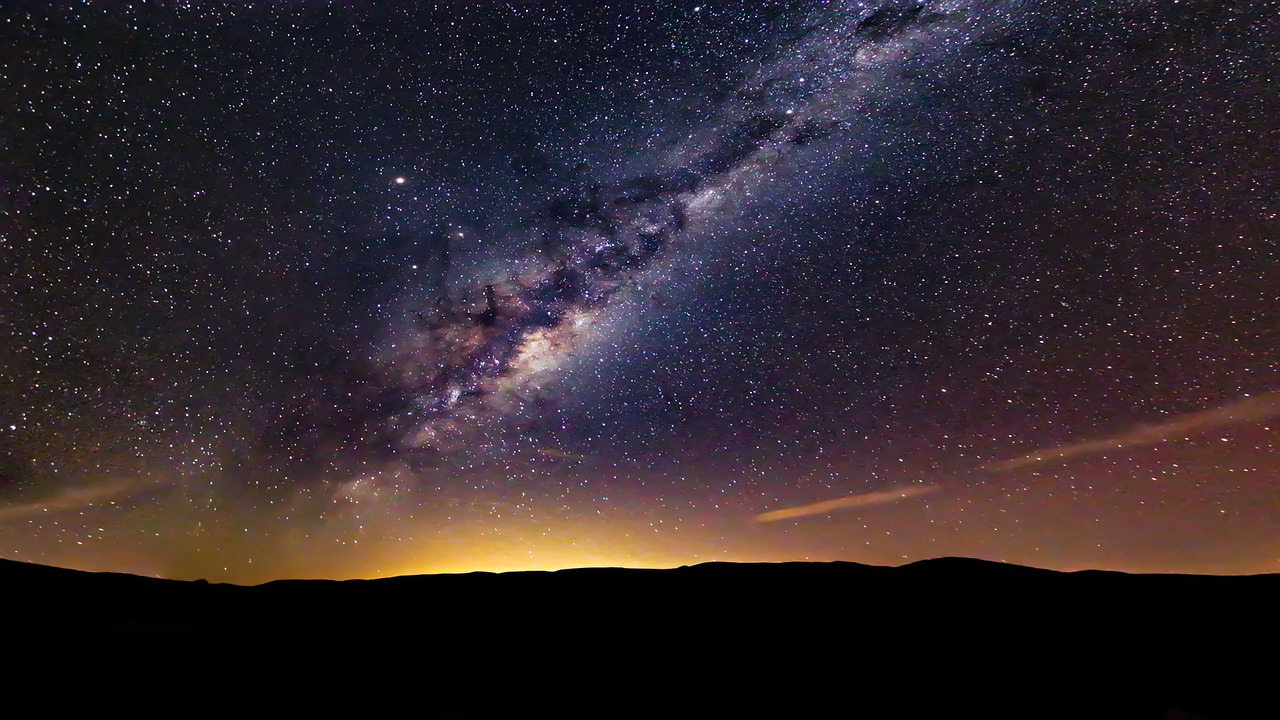
The Influence of Astronomy on Philosophy
Astronomy and philosophy have been intertwined since the dawn of human consciousness. As we gazed up at the night sky, the twinkling stars and the vastness of space ignited our curiosity and prompted profound questions about existence and our place in the cosmos. This relationship has evolved over centuries, with astronomical discoveries reshaping philosophical thought and challenging our understanding of reality. Just imagine how the ancient Greeks, peering through their rudimentary telescopes, must have felt when they first contemplated the vastness of the universe. They were not merely observing celestial bodies; they were pondering the very nature of existence itself.
As we delve deeper into this intricate relationship, we find that astronomy has not only provided us with knowledge about the cosmos but has also served as a catalyst for philosophical inquiry. For instance, the heliocentric model proposed by Copernicus shifted humanity's perspective from an Earth-centered universe to one where the Sun is at the center. This monumental shift didn't just alter our scientific understanding; it forced us to reconsider our place in the universe. Are we merely insignificant specks in a vast cosmos, or do we hold a unique position within it? Such questions have fueled philosophical debates for centuries.
Moreover, the development of telescopes and advancements in space exploration have further deepened our philosophical explorations. The discovery of exoplanets, for example, raises tantalizing questions about the possibility of life beyond Earth. If we are not alone in the universe, what does that mean for our understanding of life, consciousness, and the very fabric of existence? Are we part of a grand cosmic tapestry, or are we isolated in our own little bubble? These inquiries challenge us to rethink our assumptions and beliefs.
To illustrate the profound impact of astronomy on philosophy, consider the following key areas:
| Astronomical Discovery | Philosophical Implication |
|---|---|
| Heliocentric Model | Rethinking humanity's place in the universe |
| Discovery of Exoplanets | Possibility of extraterrestrial life and its implications |
| Big Bang Theory | Questions about the origin of the universe and existence |
| Dark Matter and Dark Energy | Challenges to our understanding of reality and existence |
Furthermore, the influence of astronomy extends to ethical considerations as well. As we uncover the mysteries of the universe, we are also faced with questions about our responsibilities as stewards of Earth. The realization that our planet is but a tiny oasis in an infinite expanse of space prompts us to reflect on our actions and their consequences. Are we doing enough to protect our environment? How does our treatment of Earth reflect our understanding of our place in the cosmos? These ethical dilemmas are deeply intertwined with our philosophical inquiries.
In conclusion, the influence of astronomy on philosophy is profound and multifaceted. As we continue to explore the cosmos, we must remain open to the questions it raises about existence, knowledge, and our responsibilities. The stars above are not just points of light; they are reminders of the mysteries that await us and the philosophical inquiries that challenge our understanding of ourselves and the universe.
- How has astronomy changed our understanding of philosophy?
Astronomy has prompted significant philosophical inquiries about existence, our place in the universe, and ethical responsibilities towards our planet and beyond.
- What is the significance of the heliocentric model?
The heliocentric model shifted the perspective of humanity from being the center of the universe to recognizing the Sun as the focal point, challenging our understanding of significance and existence.
- How do discoveries in astronomy affect ethical considerations?
As we learn more about the universe, we are compelled to reflect on our responsibilities toward Earth and other potential life forms, raising ethical questions about our actions and their consequences.
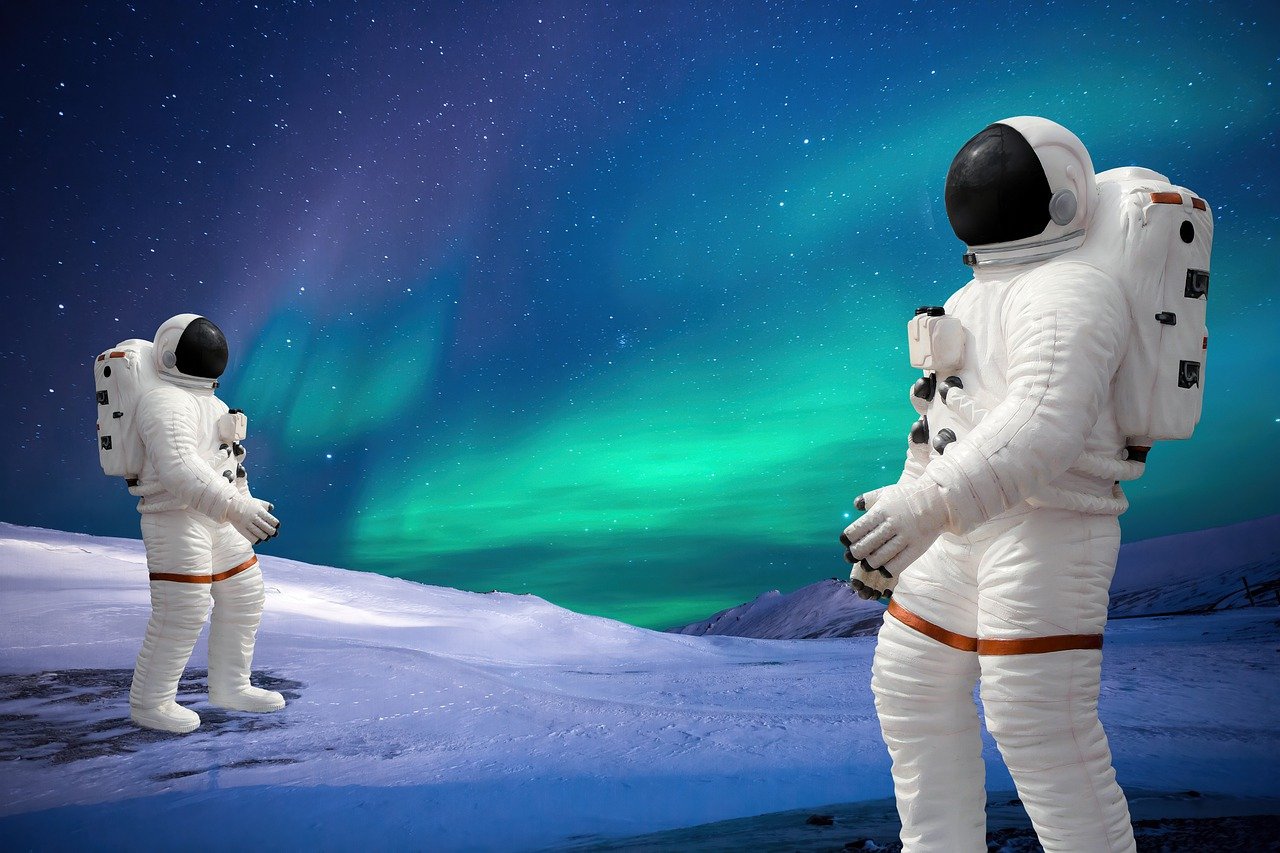
Cosmology and the Nature of Reality
Cosmology, the study of the universe's origin, evolution, and eventual fate, is not just a scientific discipline; it is a profound philosophical inquiry that challenges our understanding of reality. When we gaze up at the night sky, we are not merely observing distant stars and galaxies; we are contemplating our place in an expansive cosmos that seems to stretch into infinity. This leads us to ask: What is the nature of reality? Is it something fixed, or is it fluid and ever-changing? These questions have stirred the minds of philosophers and scientists alike, inviting us to explore the very fabric of existence.
At the heart of cosmology lies the concept of time. Traditionally, we perceive time as a linear progression—past, present, and future. However, modern cosmological theories, such as those proposed by Einstein, suggest that time may not be as straightforward as we once thought. Instead, it might be intertwined with space, forming a four-dimensional fabric known as spacetime. This revelation prompts us to reconsider our understanding of life and existence. If time is not a constant but a variable that can bend and warp, how does that affect our experiences and perceptions?
Moreover, the idea of a multiverse challenges our very notion of reality. Imagine a vast ocean of universes, each with its own set of physical laws and constants. This theory posits that our universe is just one of many, potentially leading to infinite variations of existence. Such a concept raises profound philosophical questions: If there are countless versions of reality, what does that mean for our sense of identity, free will, and destiny? Are our choices merely one thread in a vast tapestry of possibilities? The implications of the multiverse theory extend beyond science fiction; they compel us to reflect on the nature of our existence and the choices we make.
As we delve deeper into cosmological discoveries, we find ourselves confronting the limits of human understanding. The universe is vast, and our knowledge is but a tiny drop in an infinite ocean. This realization can be both humbling and exhilarating. It invites us to embrace the mysteries of existence and to acknowledge that there is still so much we do not know. In this light, cosmology becomes not just a study of celestial mechanics but a journey into the unknown, where each discovery leads to new questions and deeper reflections.
Ultimately, the relationship between cosmology and philosophy invites us to engage in a dialogue about our existence. It encourages us to ponder our responsibilities as conscious beings within this grand universe. How do we reconcile our understanding of the cosmos with our everyday lives? How do we act ethically in a reality that is so vast and complex? These questions are not merely academic; they touch the very core of what it means to be human in a universe that is both wondrous and mysterious.
- What is cosmology? Cosmology is the scientific study of the universe's origin, evolution, structure, and eventual fate.
- How does cosmology relate to philosophy? Cosmology raises profound questions about existence, reality, and our place in the universe, prompting philosophical inquiry into these topics.
- What is the multiverse theory? The multiverse theory suggests that there are multiple, possibly infinite, universes existing simultaneously, each with its own unique properties.
- Why is time important in cosmology? Time is a fundamental aspect that influences our understanding of the universe, including its structure and the nature of events within it.

The Concept of Time in Cosmology
When we dive into the vast ocean of cosmology, one of the most intriguing concepts that bubbles to the surface is time. Is it a straight line stretching infinitely into the past and future, or is it more like a circle, endlessly looping back on itself? This question isn't just a scientific puzzle; it’s a philosophical conundrum that has baffled thinkers for centuries. Imagine time as a river, with each moment flowing into the next, yet sometimes, it feels like we can step back and view the entire river at once. This duality of time—linear yet cyclical—offers a profound lens through which we can examine our existence and our place in the universe.
In cosmology, time is often treated as a fourth dimension, intricately woven into the fabric of space. The famous physicist Albert Einstein revolutionized our understanding of time with his theory of relativity, suggesting that time is not a constant but rather a malleable entity that can stretch, bend, and warp depending on the gravitational forces at play. For instance, time moves slower in stronger gravitational fields, a phenomenon known as gravitational time dilation. This concept challenges our everyday experiences and invites philosophical questions about the nature of reality itself. If time can be altered, what does that say about our perception of it?
Moreover, cosmological models such as the Big Bang theory provide a timeline for the universe’s existence, starting from a singularity and expanding into the vast cosmos we observe today. This timeline raises questions about the beginning of time itself. What existed before the Big Bang? Was there even a 'before'? Such inquiries not only push the boundaries of scientific understanding but also provoke deep philosophical reflections. Are we simply a product of cosmic events, or is there a greater purpose to our existence?
To further illustrate the complexities of time in cosmology, consider the following table that outlines different philosophical perspectives on time:
| Philosophical Perspective | Description |
|---|---|
| Presentism | The belief that only the present moment is real, and both the past and future are mere illusions. |
| Eternalism | The view that all points in time are equally real, akin to how all locations in space exist simultaneously. |
| Cyclical Time | The idea that time is not linear but rather repeats in cycles, similar to seasons or life cycles. |
These varying perspectives remind us that time is not just a scientific measurement; it is a fundamental aspect of our reality that shapes our understanding of existence. As we ponder these concepts, we might ask ourselves: How does our perception of time influence our choices and our understanding of life? Are we merely passengers on a cosmic journey, or do we have the power to shape our destinies within the constraints of time?
In conclusion, the concept of time in cosmology is a rich tapestry woven from threads of science and philosophy. It challenges us to rethink our understanding of reality and our place within it. As we continue to explore the cosmos, we must keep asking these profound questions, for it is through inquiry that we grow, both as individuals and as a society.
- What is the nature of time in cosmology? Time in cosmology is often viewed as a fourth dimension that is affected by gravitational forces, leading to phenomena like time dilation.
- How does time relate to the Big Bang theory? The Big Bang theory provides a timeline for the universe's expansion, prompting questions about what existed before this event and the nature of time itself.
- What are the philosophical implications of time? Philosophical perspectives on time, such as presentism and eternalism, challenge our understanding of reality and existence.

The Multiverse Theory and Its Philosophical Consequences
The multiverse theory is a fascinating concept that posits the existence of multiple, perhaps infinite, universes beyond our own. Imagine standing on a beach, looking out at the ocean, and realizing that each wave represents a different universe, each with its own unique set of physical laws and realities. This theory not only expands our understanding of the cosmos but also raises profound philosophical questions that challenge our notions of reality, fate, and free will.
One of the most intriguing aspects of the multiverse theory is how it reshapes our understanding of existence. If there are countless universes, each with variations of ourselves, what does that mean for our individual identities? Are we merely one version of ourselves among many, or does each version hold equal significance? This leads to deep philosophical inquiries about the nature of selfhood and existence. It prompts us to ponder: if every decision we make spawns a new universe, how do we define the essence of our choices?
Furthermore, the multiverse theory invites us to reconsider the concept of fate. In a universe where every possible outcome occurs, the idea of a predetermined path becomes increasingly complex. Are we truly the architects of our destinies, or are we simply navigating through a labyrinth of pre-existing choices? This question echoes through philosophical discussions, challenging the traditional views of determinism and free will.
To illustrate the philosophical consequences of the multiverse theory, consider the following implications:
- Existential Reflection: The existence of multiple universes encourages individuals to reflect on their life's meaning and purpose. If there are infinite versions of ourselves, what does it mean to live authentically?
- Ethical Considerations: With the multiverse, the consequences of our actions could ripple through countless realities. This raises ethical dilemmas about responsibility and the weight of our choices.
- Nature of Reality: The multiverse challenges our understanding of what is 'real.' If multiple realities exist, how do we define the boundaries of our own reality?
In essence, the multiverse theory acts as a philosophical mirror, reflecting our deepest questions about existence, identity, and morality. It invites us to explore the very fabric of reality and our place within it. Just as a single drop of water can create ripples across a vast pond, the implications of the multiverse theory extend far beyond the scientific realm, influencing our philosophical outlook on life itself.
As we delve deeper into these cosmic questions, we find ourselves at the intersection of science and philosophy, where the mysteries of the universe beckon us to think critically and expansively. The multiverse theory not only expands our scientific horizons but also enriches our philosophical discourse, urging us to seek understanding in a reality that is far more complex and beautiful than we ever imagined.
- What is the multiverse theory? The multiverse theory suggests that there are multiple, potentially infinite universes that exist parallel to our own, each with different physical laws and realities.
- How does the multiverse theory affect our understanding of reality? It challenges traditional notions of reality by suggesting that every possible outcome exists in some universe, leading to questions about existence and identity.
- What philosophical questions does the multiverse theory raise? It raises questions about fate, free will, the nature of selfhood, and ethical responsibilities across multiple realities.
Frequently Asked Questions
- What is the solar system, and how did it form?
The solar system is a collection of celestial bodies, including the Sun, planets, moons, asteroids, and comets, all bound by gravity. It formed approximately 4.6 billion years ago from a giant cloud of gas and dust, which collapsed under its own gravity, leading to the creation of the Sun and the surrounding planets.
- How do philosophical concepts relate to our understanding of the solar system?
Philosophical concepts often explore the implications of our cosmic existence, the nature of reality, and humanity's place in the universe. For instance, questions about the meaning of life and our responsibilities towards Earth arise from our knowledge of celestial bodies and their interactions.
- What is the Gaia Hypothesis, and why is it significant?
The Gaia Hypothesis proposes that Earth functions as a self-regulating system, where living organisms interact with their inorganic surroundings to maintain conditions for life. This idea encourages discussions about environmental ethics and the interconnectedness of all life forms.
- Can you explain the anthropocentric viewpoint?
The anthropocentric viewpoint is the belief that human beings are the most important entities in the universe. This perspective shapes our understanding of Earth’s role and raises ethical questions about how we treat other life forms and the environment.
- How has astronomy influenced philosophical thought?
The development of astronomy has significantly impacted philosophical thought by challenging our perceptions of reality. Discoveries about the universe have led to inquiries about the nature of knowledge, truth, and our understanding of existence itself.
- What are the implications of the multiverse theory?
The multiverse theory suggests that there are multiple, possibly infinite, universes beyond our own. This concept raises profound philosophical questions about fate, free will, and what reality truly means, prompting us to reconsider our understanding of existence.
- How does the concept of time play a role in cosmology and philosophy?
Time is a crucial aspect of both cosmology and philosophy. Theories regarding whether time is linear or cyclical influence our understanding of human life, existence, and the universe. This exploration can lead to deep reflections on our place in the cosmos.

